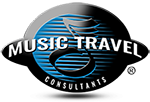ISSMA Copyright Requirements
ISSMA Copyright Requirements
Copyright is defined as the legal right granted to an author, composer, playwright, publisher, or distributor to exclusive publication, production, sale, or distribution of a literary, musical, dramatic, or artistic work.
Although copyright can seem like a hassle or burden at times, it was actually created to benefit everyone. The stated purpose of copyright law is “to promote the progress of knowledge and learning”. In the music world, this means it was introduced to keep composers creating. Otherwise there would be no incentive (either monetary or artistic ownership) for people to compose new music.
"Fair Use” is often misused in an attempt to avoid adherence to Copyright Law. It is not to be left up to an individual interpretation that may eliminate the need of purchasing more copies or obtaining permission to create a new arrangement. The true purpose of “Fair Use” is to establish equilibrium in order to avoid a monopoly. Also, simply disagreeing with the Copyright Law does not make one immune to it. It is to be followed as any other law whether it is liked or not. In most cases permission is required.
This permission comes in the form of a license. There are several types of copyright licenses that are very specific as to what type of permission is being granted. Obtaining one type of license does not mean you are covered for all of them. The most commonly used licenses/permissions are as follows;
- Performance License – Grants the permission to perform the work in or to the public
- Permission to Arrange – Grants the right to prepare a derivative work based on the copyrighted work
- Mechanical License – Grants permission to reproduce the work as a sound recording
- Synchronization License – Grants permission to videotape a performance of the work (reproduce a musical composition “in connection with” or “in timed relation with” a visual image)
- Master Use License – Grants permission to use a specific sound recording of a song during your performance. Example: Incorporating an actual artist’s recording of a pop song into a marching band pre or post show.
- Grand Rights (Adaptive Dramatic) License – Grants permission for the public performance of copyrighted musical works in a dramatic setting. Needed if there is a copyrighted narrative or plot in the performance.
ISSMA, Inc. requires all groups participating in ISSMA Show Choir and Marching Band Events to secure permission to arrange for any pieces/songs being altered or arranged for their show. Written documentation with all proper signatures must be submitted to the ISSMA Office before participants will be allowed to perform. This also includes any original pieces composed for the groups. A signed letter from the composer must be submitted indicating that the piece was indeed created for that specific group and use.
For more information about Copyright refer to the following resources;
- “The United States Copyright Law: a guide for music educators” issued jointly by Music Educators National Conference, Music Publishers’ Association of the United States, Music Teachers National Association, National Association of Schools and Music, and National Music Publishers’ Association
- “Copyright: The Complete Guide for Music Educators” by Jay Althouse
- US Copyright Office : www.copyright.gov
- Tresona Licensing Exchange - www.tresonamusic.com
- Hal Leonard Copyright Department: www.halleonard.com/permissions/index.jsp
- The Mutopia Project (contains public domain music): www.mutopiaproject.org
- NFHS Copyright: copyright.nfhs.org
- ClicknClear: www.clicknclear.com
- School Music License: schoolmusiclicense.com






